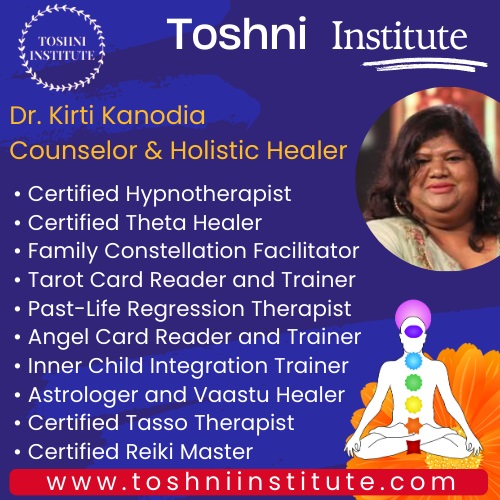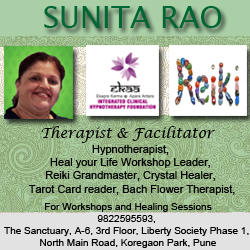Alternative Therapies
- Alternative Medicine
- Access Bars
- Access Body Processes
- Acupressure
- Acupuncture
- Akashic Records
- Angel Healing
- Aura Reading
- Ayurveda
- Bach Flower Remedies
- Bio-Energetics
- Breathwork
- Cosmetic Acupuncture
- Crystal Healing
- Cupping Therapy
- Emotional Freedom Technique (EFT)
- Ergonomics
- Fengshui
- Holistic Solutions
- Holy Fire Reiki
- Homeopathy
- Hypnotherapy
- Jikiden Reiki
- Manual Therapy
- Meditation
- Motivational Counseling
- Mudra Healing
- Naturopathy
- Neuro Linguistic Programming (NLP)
- Panchakarma (Ayurveda)
- Past Life Regression
- Physiotherapy
- Pranic Healing
- Pyramids
- Reiki
- Rudraksh
- Shamanic Healing
- Silva Mind Control Method
- Sujok therapy
- Tarot
- Tera MaiTM Seichem
- Theta Healing
- Unani Medicine
- Yoga
Diseases & Conditions
- Acne & Pimples
- Allergies
- Arthritis
- Asthma
- Behavioural Disorders
- Dandruff
- Diabetes
- Emotional Problems
- Gallstones
- Gastritis
- Hairloss
- Heart Diseases
- Hormonal Problems
- Hypertension
- Immune Disorders
- Infections
- Infertility
- Jaundice
- Kidney Disorders
- Liver Disorders
- Menstrual Disorders
- Migraine
- Neck & Back Pain
- Obesity
- Osteoporosis
- Peptic Ulcer
- Prevention
- Prostate Problems
- Psoriasis
- Sexual Dysfunctions
- Sinusitis
- Sleep Disorders
- Skin Diseases
- Stress
- Thyroid Disorders
- Ulcerative Colitis
- Urinary Infections
General Wellness
Cosmicx Healing Art - Ms. KripaJyoti Nisha Singla
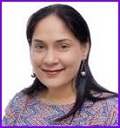
KripaJyoti Nisha Singla (PGDBM) is a Spiritual master, Energy worker, Reiki Master, Theta Instructor, and a dedicated Artist who has been working in the field of healings, spirituality, counselling, relationship healing, family therapy and alternative medicine therapies from more than 12 years.

Dr. Kirti Kanodia

Dr. Kirti Kanodia is a certified Theta Healer, Trained Family Constellation Facilitator, Tarot card Reader, Past life Regression Therapist, Angel card reader, Inner child integration, Astrologer, Tasso Therapist and Reiki Master.

Dr. Geettanjali V. Saxenaa.

Past life Regression Trainer, Family Constellation Trainer, Theta Healing Trainer, Inner Child Work, Angel Therapist, Reiki healer, Hypnotherapy, Crystal Healing, Graphology, Tarot card reader & Astrologer

The Sanctuary - Ms. Sunita Rao
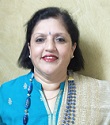
In her pursuit of finding better ways to heal the human body, mind and spirit Sunita Rao has been certified by internationally renowned organizations such as the EKAA School of Integrated Clinical Hypnotherapy and Heal Your Life based on the philosophy of Louise L Hays. She is also a Reiki Grandmaster practising and initiating in the Usui system of Reiki..

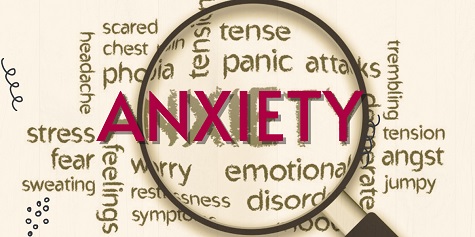
MENTAL DISORDERS
Panic Attack
Panic is typically defined as acute anxiety, terror, and or fright that is usually of immediate and sudden onset. The panic feels uncontrollable to the one experiencing it. Panic attacks are considered to be more acute and intense than general panic.
Anxiety Anxiety is a complex experience. You can consider it similar to a combination of the feeling of fear, apprehension and worry all at the same time, often accompanied by physical sensations such as the sensation of feeling ones heart beat loudly, chest pain and/or shortness of breath without any exertion. It is similar to Anxiety Attack, but not as acute, or as intense.
Stress
In western medicine, stress symptoms are produced as a result of a structure, system, or organism being acted on by forces that disrupt equilibrium or produce strain. In health care, the term denotes the physical and psychological forces that are experienced by individuals in daily life such as fear, anxiety, physical strain, and many other factors. When stress occurs in large quantities that the system cannot handle in a healthy way, it produces pathological changes in the body and thus disease is born.
Anxiety Attack
A anxiety attack is a period of intense fear or discomfort, typically with an abrupt onset and usually lasting no more than thirty minutes. Anxiety attacks are much different from other types of anxiety, in that anxiety attacks are very sudden, appear unprovoked, and are often disabling.
Eating Disorder
Eating disorders are a group of mental disorders that interfere with normal food consumption. They may lead to serious health problems and, in the case of both bulimia nervosa and anorexia nervosa, even death. The major recognized eating disorders are anorexia nervosa, bulimia nervosa, binge eating disorder and rumination. Other mental disorders, such as clinical depression or anxiety can also disturb eating patterns, but these disorders are not considered eating disorders. In these cases, the change in eating behavior is not considered a central feature of the disorder. Symptoms of eating disorders are dependant upon the specific diagnosis
Clinical Depression
Clinical Depression is a health condition of depression with mental and physical components reaching criteria generally accepted by clinicians. Although nearly any mood with some element of sadness may colloquially be termed a depression, clinical depression is more than just a temporary state of sadness. Symptoms of clinical depression lasting two weeks or longer in duration, and of a severity that they begin to interfere with daily living, can generally be said to constitute clinical depression.
ADHD
Attention-deficit hyperactivity disorder (ADHD) is one of the most commonly diagnosed mental disorders among children, although it also occurs in adults.
Depression
In ordinary conversation, nearly any mood with some element of sadness may be called "depressed". However, for depression to be termed clinical depression it must reach criteria which are generally accepted by clinicians; it is more than just a temporary state of sadness. Generally, when symptoms last two weeks or more, and are so severe that they interfere with daily living, one can be said to be suffering from clinical depression. Using DSM-IV-TR terminology, someone with a major depressive disorder can, by definition, be said to be suffering from clinical depression. True clinical depression is distinguished from non-organic illnesses that mimic it, such as caffeinism.
Adult Attention Deficit Disorder
Adult attention deficit disorder (AADD) is the common terminology for the psychiatric condition currently known as attention-deficit hyperactivity disorder (ADHD), also known as attention deficit disorder (ADD), when it occurs in adulthood.
Anorexia
Anorexia is an eating disorder characterised by voluntary starvation and exercise stress. Anorexia is a complex disease, involving psychological, sociological and physiological components. A person who is suffering from anorexia is known as an 'anorexic,' 'anorectic,' or the less common 'anoretic.' Anorexia simply refers to the medical symptom of lost appetite. Anorectic and anoretic also refer to appetite-suppressing drugs.
Schizophrenia
Schizophrenia is a psychiatric diagnosis denoting a persistent, often chronic, mental illness variously affecting behavior, thinking, and emotion. The status of schizophrenia is controversial, largely due to the lack of objective criteria for diagnosis and the subsequent difficulty in adequately researching an inadequately defined condition. Research has suggested however, that both genetic and social influences are important contributing factors. Schizophrenia is commonly, but usually incorrectly, assumed to involve a 'split personality'.
Dementia
Dementia (from Latin demens) is progressive decline in cognitive function due to damage or disease in the brain beyond what might be expected from normal aging. Particularly affected areas may be memory, attention, language and problem solving, although particularly in the later stages of the condition, affected persons may be disoriented in time (not knowing what day, week, month or year it is), place (not knowing where they are) and person (not knowing who they are). Dementia can be classified as either reversible or irreversible depending upon the etiology of the disease. Dementia is a non-specific term that encompasses many disease processes just as fever is attributable to many etiologies.
Obesity
Obesity is a condition in which the natural energy reserve of a mammal (such as a human), which is stored in fat tissue, is expanded far beyond usual levels to the point where it impairs health. Obesity in wild animals is relatively rare, but it is common in domestic animals like pigs and household pets who may be overfed and underexercised.
Post Traumatic Stress Disorder
Post-traumatic stress disorder (PTSD) is a term for the psychological consequences of exposure to or confrontation with stressful experiences, which involve actual or threatened death, serious physical injury or a threat to physical integrity and which the person found highly traumatic. Symptoms can include reexperiencing phenomena such as nightmares and flashbacks, avoidance of reminders and emotional detachment, and hyperarousal with sleep abnormalities, extreme distress resulting from personal "triggers", irritability and excessive startle. There is also the possibility of simultaneous suffering of other psychiatric disorders. Experiences likely to induce the condition include rape, combat exposure, natural catastrophes, violent attacks, childbirth and perhaps its accompanying exhaustion, and childhood physical/emotional abuse. PTSD often becomes a chronic condition but can improve with treatment or even spontaneously.


